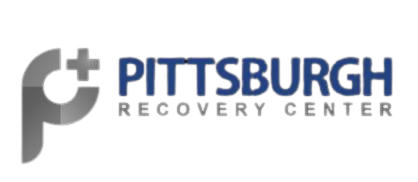At Pittsburgh Recovery Center, we understand the winding road of recovery and the profound courage it takes to steer through the storm of addiction. This journey becomes even more intricate when it intersects with co-occurring mental health conditions. For someone living with the dual challenges of substance abuse and mental illness, the weight of these struggles can feel overwhelming. If you have ever asked yourself, “Should I go to a dual diagnosis rehab?” take heart in knowing there is a path forward that embraces healing on multiple levels through comprehensive treatment.
Understanding the Dual Challenge
Addiction rarely exists in isolation. More often than not, it’s intertwined with mental health conditions like depression, anxiety, PTSD, or bipolar disorder. These tangled roots can trap individuals in a cycle of substance use as a way to self-medicate, which is a temporary band-aid for deeper wounds. As the Twelve Steps guide us to uncover deeper truths—admitting powerlessness over substances and recognizing a higher power—embracing a dual diagnosis rehab approach means comprehensively addressing each facet of your struggle.
A dual diagnosis rehab is crucial for those with co-occurring conditions because it approaches healing from a holistic standpoint, treating both addiction and mental health issues in unison. Ignoring one aspect of this equation can short-circuit recovery and lead us back to the dark corners we’ve fought to escape. Seeking a rehab program specializing in dual diagnosis treatment is not just a step—it’s the right step toward lasting recovery.
What to Look for in a Dual Diagnosis Rehab Program
Selecting the right program is vital—think of it as choosing your compass for this transformative journey. If you are wondering, “Should I go to a dual diagnosis rehab?” there are key elements to consider when seeking the best treatment center.
An integrated treatment approach is essential. A high-quality dual diagnosis rehab seamlessly blends addiction treatment with mental health care, offering psychiatric evaluation, medication management, and individualized therapy sessions.
Qualified professionals play a significant role in recovery. The best dual diagnosis rehab centers boast a team of licensed practitioners, including psychiatrists, therapists, and addiction counselors specializing in co-occurring disorders. Their expertise is instrumental in customizing a treatment plan that addresses both substance use and mental health conditions.
Effective therapeutic modalities should be at the core of a dual diagnosis program. Evidence-based therapies such as Cognitive Behavioral Therapy (CBT), Dialectical Behavior Therapy (DBT), and trauma-informed care provide individuals with tools to cope with both the obsessive nature of addiction and the emotional intensity of mental health challenges.
A supportive community is another critical aspect of recovery. Healing flourishes in environments of empathy and understanding. Seek out programs that offer a strong sense of community and peer support where peers can connect on similar experiences, trials, and tribulations.
A focus on aftercare is essential for sustaining recovery. Comprehensive aftercare planning, including outpatient support, alumni networks, ongoing therapy, and sober living, is crucial in helping individuals maintain sobriety and mental well-being long after rehab.
Benefits of Attending a Dual Diagnosis Program
If you ask, “Should I go to a dual diagnosis rehab?” consider its transformative benefits. A dual-diagnosis rehab program provides holistic healing by addressing both mental health and substance use simultaneously, dismantling the self-doubt and isolation that often fuel relapse.
Each person’s recovery journey is unique, and with a personalized recovery plan, treatment is tailored to individual needs, evolving as progress is made.
Improved relationships are another vital outcome. By understanding the interplay between addiction and mental health, individuals not only heal themselves but also mend relationships with loved ones who have weathered the storm by their side.
Empowerment through understanding mental health is a significant benefit. Gaining insight into mental health conditions can empower individuals to manage symptoms more effectively, fostering resilience and confidence as they reclaim control over their lives.
Most importantly, long-term success is a key advantage of dual diagnosis rehab. Tackling the root causes and symptoms of mental illness alongside addiction can significantly reduce the risk of relapse, setting the foundation for a stable and fulfilling life in recovery.
At Pittsburgh Recovery Center, we’ve witnessed how transformative this comprehensive approach can be. Each success story fills us with hope and reinforces our belief in the power of dual diagnosis treatment.
Begin Your Healing at a Dual Diagnosis Treatment Program
Every journey begins with a single step; today, that step might be reaching out for help. If you or someone you love is wrestling with both addiction and a co-occurring mental health condition, know that dual diagnosis treatment could be your lifeline.
Let’s walk this path of hope and healing together. Call Pittsburgh Recovery Center today to learn how their dual diagnosis rehab program can support you.
Remember, in this shared journey of rediscovery and renewal, we hold onto hope and each other. Your struggles do not define you, but the strength you find in overcoming them does. We believe in you, and we can illuminate the way forward together.

